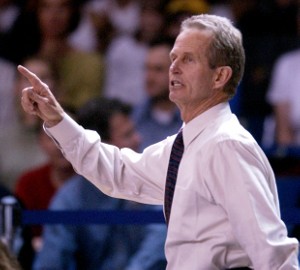Blocked vs random practice!
„The random versus blocked practice methods represent a fundamental paradox regarding athletic performance during training and subsequent performance during competition. Based on performance measurements during practice, blocked activities, in which athletes repeatedly rehearse the same task, result in superior performance during the training session. In comparison, performing tasks and skills in random order decreases skill acquisition during training. Consequently, based on measurement of performance effects during practice, many coaches and players believe that blocked practice is superior to random practice. Such a conclusion however, mistakenly assumes a positive correlation between performance in practice and long-term skill retention. The paradox arises from the fact that blocked practice is in fact very ineffective for transfer of learning to competition as performance improvements measured during practice degrade rapidly, and inefficient because retraining on the same skills will be necessary. Conversely, random practice is both effective, transfer to competition is high, and efficient, skill acquisition is relatively permanent. Indeed, the superiority of random practice has been substantiated for a large number of sports skills including volleyball, badminton, baseball, basketball, tennis, and soccer, and its utility and training applications thoroughly reviewed by Schmidt and Lee.
Finally, scientific research into the neurological reasons for this superiority have revealed that variable activities increase and strengthen the brain connections that are responsible for learning motor skills whereas simply repeating the same activities exerts no measurable effect on these brain connections. The neuronal explanation for these effects are perhaps best exemplified by our own observations (Bain and McGown), of inexperienced coaches training novice players where the instructor(s) become frustrated by the performance variability and lack of successful repetitions of new learners. As a consequence, these inexperienced coaches limit or abandon whole teaching methods for part, and random practice for blocked. Unfortunately, this course of action deprives the learner of the environmental variability and sensory inputs that are essential for the formation of motor maps and implicit behaviors, which are ultimately reflected in the acquisition of functional skills and expert performance. In total, the evidence on this topic is clear; drawing distinctions between training methods based on age or ability is a coaching practice that has no foundation in either motor learning science or in the application of motor learning principles.“ (McGown and Bain)
More from Mc Gown: Part to whole progression